| Biografia Wolfgang Goethe |

|
Johann Wolfgang von Goethe (Francoforte sul Meno, 28 agosto 1749 - Weimar, 22 marzo 1832) fu il pi¨ grande poeta tedesco, un esimio scrittore ed un illustre scienziato. Come scrittore, Goethe fu una delle figure paradigmatiche della Letteratura tedesca e del Romanticismo europeo dei secoli diciottesimo e diciannovesimo. Goethe scrisse il Faust e ispir˛ Darwin con la scoperta delle ossa di premaxilla umana.
Goethe nacque a Francoforte sul Meno il 28 agosto 1749. Dal padre Johann Kaspar Goethe - agiato borghese - eredit˛ la serietÓ, la coscienziositÓ e l'amore per l'ordine sia morale che pratico, mentre dalla madre Katharina Elisabeth Textor, acquisý la socievolezza, la gaiezza e la fantasia. La sua infanzia fu serena, disciplinata e ricca di studio.
Il padre gli fece studiare il disegno, la musica, l'equitazione, la scherma, il tedesco alla perfezione, le lingue antiche e moderne (greco, latino, ebraico, italiano, francese, inglese). Questo periodo felice e spensierato si concluse quando, a quindici anni, il giovane Goethe si vide ingiustamente processato per truffa. La crisi morale che ne deriv˛ port˛ il ragazzo a scrivere versi sarcastici ed a distruggere parecchi manoscritti per manifestare la propria ribellione.
Nel 1765 and˛ a Lipsia dove rimase per tre anni, frequentando i corsi di giurisprudenza all'UniversitÓ della cittÓ. Qui il giovane si inserý senza difficoltÓ nella frivola vita di societÓ, cosý diversa dalla societÓ conservatrice e patriarcale di Francoforte. La produzione di questo periodo comprese opere convenzionali, formalmente virtuose, ma anche sinceri e dolorosi sfoghi, rivelatori dell'insoddisfazione di fondo che caratterizz˛ tutto il periodo lipsiese.
Egli scrisse i Neue Lieder (Nuove Canzoni), il Buch Annette (Libro per Annette), e le commedie Die Laune des Verliebten (I capricci dell'innamorato) e Die Mitschuldigen (I correi). Qui, tormentato dall'amore per Kńtchen Sch÷nkopf e deluso dal mondo accademico, Goethe si ammal˛ gravemente, e nel 1768 decise di tornarsene a casa.
Durante i due anni che rimase a Francoforte, grazie alla madre ed all'amica Susanna von Klettenberg, egli aderý al pensiero ed alle pratiche pietistiche che per˛ abbandon˛ presto per crearsi un cristianesimo ad uso privato. Nel 1770 si trasferý a Strasburgo, dove complet˛ gli studi di giurisprudenza. Guarito e rinnovato nel fisico e nello spirito, manifest˛ in ogni campo la sua appassionata voglia di vivere, con lunghe passeggiate a piedi ed a cavallo, cordiali relazioni con tutti ed affettuosi sentimenti nei rapporti umani.
Il suo fascino conquist˛ molte donne, dalle figlie del suo maestro di ballo, a Friederike Brion - figlia del parroco di Sesenheim - alla quale dedic˛ molte poesie. Fu allo stesso modo ammirato dagli amici, tra i quali Johann Heinrich Jung-Stilling, Richard Wagner e Jakob Michael Reinhold Lenz. In quegli anni conobbe Johann Gottfried Herder, che tanto influenz˛ la sua formazione, ed impar˛ a vedere il mondo come un'immensa totalitÓ in cui il fisico e lo spirituale erano indistinguibili. Nel 1771 si stabilý a Francoforte in qualitÓ di avvocato.
Frutto dei lunghi colloqui con Johann Gottfried Herder, fu l'opera meditata e programmatica di quel particolare periodo. Scrisse, infatti, due saggi sull'architettura tedesca Von deutscher Baukunst, e Zum Shakespeare-Tag in omaggio a William Shakespeare. Nell'apparente disordine dell'architettura gotica e dei drammi dello scrittore inglese, Goethe trov˛ quell'unitÓ tipica del genio e della natura, entrambi fedeli a leggi proprie.
Sempre di quell'anno fu la prima stesura in prosa di Die Geschichte Gottfriedens von Berlichingen mit der eisernen Hand, (Storia di Goffredo di Berlichingen dalla mano di ferro). Con la trama di questo cavaliere tedesco costretto a diventare ribelle ed a schierarsi con i contadini contro l'Impero nella guerra del 1525, Johann Wolfgang compý una rottura con il teatro precedente e con la revisione compiuta nel 1773, che alleggerý notevolmente l'opera, acchÚ Goethe ottenne il primo vero grande successo.
Il G÷tz von Berlichingen fu il primo dramma tedesco moderno, ed aprý il filone del teatro storico-popolare. Durante il quinquennio iniziato a Strasburgo e conclusosi con la partenza per Weimar, la sua produzione lirica fu veramente frutto del miracolo, di una personalitÓ intrisa di passione e di saggezza, di nostalgia di infinito e di attaccamento alla terra. Le opere spaziarono dall'ingenuitÓ popolaresca di Rosellina della landa (Heindenr÷slein), alla grazia settecentesca di Piccole foglie, piccoli fiori (Kleine Blumen, Kleine Blńtter).
Goethe raggiunse una sbalorditiva padronanza della forma e diresse i suoi sforzi verso una totale spiritualizzazione della natura, risultato ottenuto splendidamente nel Canto di Maometto (Mahomets Gesang). Scrisse anche alcune commedie e farse denotanti il gusto per il quadro pittoresco e la lingua parlata dal popolo (Il satiro, La fiera di Plundersweiler, ed altre).
Questo periodo geniale port˛ anche alla composizione delle scene del Faust (Urfaust), ad indicare il nucleo pi¨ antico di quest'opera. L'Urfaust racchiude le parti poeticamente pi¨ alte, originali e potenti, i brani lirici pi¨ belli come le canzoni di Gretchen. Nel 1772 torn˛ a Francoforte. In quegli anni strinse amicizia con Johann Kaspar Lavater, Friedrich Heinrich Jacobi ed i fratelli Stolberg, indi, nel 1774, si fidanz˛ con Lili Sch÷nemann.
In questo periodo pubblic˛ Prometeus, Satyros, Peter Brey, la satira G÷tter, Helden und Wieland (Dei, eroi e wieland), le poesie a Lili, i drammi Clavigo ed in seguito Stella. In quell'anno apparý Die Leiden des jungen Werthers (I dolori del giovane Werther). Il successo del romanzo deriv˛ dall'immedesimazione della sua generazione nel protagonista e dal riconoscimento dei diritti del cuore contro le leggi dell'etica e della societÓ. Il romanzo con la sua potente carica emotiva fu fondamentale per la comprensione della personalitÓ del sommo poeta.
Dopo la pubblicazione del Werther, per Goethe fu l'apoteosi e divenne l'indiscusso capogruppo della nuova poesia del celeberrimo Sturm und Drang. Mai come in quel momento fu cosý vicino alla felicitÓ, anche in campo sentimentale. Nonostante tutto ci˛, la prospettiva di una vita matrimoniale con Lili nel frivolo, ricco e convenzionale ambiente della sua famiglia gli sembr˛ una schiavit¨ per il suo spirito in continuo movimento. Nelle poesie a Lili Sul lago (Auf dem See), si potÚ giÓ trovare il travaglio che accompagn˛ la nascita di una nuova personalitÓ.
Il 7 novembre 1775 Goethe venne chiamato a Weimar come precettore di Carlo Augusto, Duca di Saxe-Weimar e l'anno successivo venne nominato consigliere segreto di legazione. Gli anni che vanno dal 1776 al 1788 furono segnati dall'amicizia con Charlotte von Stein, donna che si impegn˛ ad educarlo ai compiti che lo avrebbero atteso come precettore e poi come consigliere del duca.
Charlotte von Stein dovette innanzitutto trasformare l'illustre poeta in un uomo di mondo, poi ridurre il viziato idolo del momento in un uomo rispettoso delle regole di vita esistenti nel ristretto e selezionato ambiente in cui viveva la duchessa Anna Amalia. Questi insegnamenti di equilibrio, misura ed autodominio, che furono la base della sua evoluzione, vennero ben accettati da Goethe pur costandogli considerevoli sforzi e sacrifici.
I primi dieci anni trascorsi a Weimar, caratterizzati da una certa povertÓ nella produzione poetica, indicarono proprio questa sua lenta trasformazione. In quegli anni vi furono opere ancora improntate dalla sua poesia precedente, quali per esempio I canti di Mignon inclusi nel Meister, le due ballate Il pescatore (Der Fischer) ed Il re degli elfi (Erlk÷nig), e lo stupendo Canto notturno del viandante (Wanderers Nachtlied) poesia nella quale l'anima del poeta lentamente si sostituiva al cuore capriccioso che aveva dominato la produzione precedente.
La ricerca della veritÓ ultima dell'anima domin˛ altre composizioni; scrisse infatti il Canto degli spiriti sopra le acque (Gesang der Geister Řber dem Wasser), i Limiti dell'umano (Grenzen der Menscheit) ed Il divino (Das G÷ttliche). In quel periodo (dal 1777 al 1785) Goethe compose anche il romanzo La missione teatrale di Guglielmo Meister (Wilhelm Meisters theatralische Sendung) ed il dramma, del 1779, Ifigenia in Tauride (Iphigenie auf Tauris). Quegli anni, inoltre, lo videro impegnato su diversi fronti come consigliere ministeriale per gli affari militari, per la viabilitÓ, per le miniere e la pubblica amministrazione.
Fu anche sovrintendente ai musei, e nel 1782 venne insignito del titolo nobiliare. Quel periodo di radicali cambiamenti e senza dubbio negazione di se stesso, finý quando Goethe, nel 1786, all'insaputa di tutti, fuggý in Italia. Trascorse cosý due anni di piena felicitÓ, nel duplice appagamento dei sensi e dello spirito, grazie all'amore ed all'incanto della civiltÓ antica. Il paesaggio, l'arte ed il carattere del popolo italiano incarnarono il suo ideale di fusione di spirito e sensi. Qui egli riuscý a dare la forma definitiva all'Ifigenia in Tauride, che scritta in prosa, trov˛ il suo compimento nel Blankvers o pentapodia giambica.
Quest'opera venne giudicata il vangelo del moderno umanesimo. Questo dramma, come tutti i drammi di Goethe, fu una tragedia solo in potenza, infatti Ifigenia avrebbe salvato il fratello dalla follia e Toante dall'ingiustizia, ma soprattutto, grazie alla propria forza morale, avrebbe trionfato sul destino e mantenuto la propria libertÓ. Un altro esempio di questo peculiare intendere il dramma, fu il Torquato Tasso, altra opera portata a termine in Italia, nel quale lo scrittore tedesco celebr˛ nel poeta italiano il proprio demone giovanile.
Nel 1788 torn˛ a Weimar dove trov˛ una fredda accoglienza. La pubblicazione delle Elegie romane (R÷mische Elegien), racconto del periodo italiano, suscit˛ indignazione, come anche la sua relazione con Christiane Vulpius, una modesta fioraia, che in seguito spos˛. L'insieme degli eventi chiuse Goethe in una sorta di isolamento sociale, ma soprattutto spirituale. La consapevolezza di essere incompreso e la dolorosa coscienza della propria momentanea ariditÓ poetica lo portarono ad un disprezzo e ad un rifiuto di tutto ci˛ che fosse lontano dal proprio modo di pensare. La crisi di quegli anni fu gravissima, ma come giÓ in passato, nel 1794, la comparsa e l'amicizia di un uomo quale Friedrich Schiller, lo salv˛ da tale situazione. Dal 1794 si dedic˛ principalmente alla letteratura, e dopo una vita di straordinaria feconditÓ creativa morý nel 1832 a Weimar.
Da wikipedia
Ti piace la scrittura creativa, la poesia e parlare di letteratura? Perche' non vieni sul forum di zam per incontrare nuovi amici con la tua passione!
Hai un sito che parla di Wolfgang Goethe?
Inserisci il link su zam.it
|
|
Ultimi libri pubblicati di
Wolfgang Goethe | Faust: Erster Teil
 | Poemas del amor y del conocimiento: 12-2
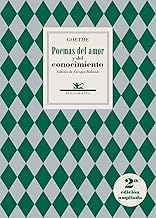 | Het lijden van de jonge Werther
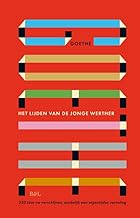 | I dolori del giovane Werther
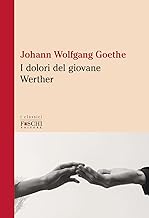 | Da l├Ąuft die Maus! Goethe f├╝r Kinder und andere Zauberlehrlinge
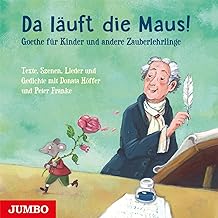 | Mittendrin Band 2: 7./8. Schuljahr - Schulbuch
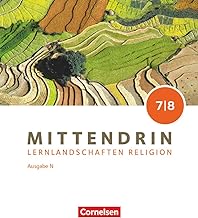 | The Metamorphosis of Plants
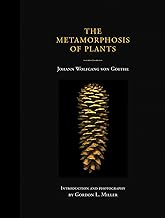 | I dolori del giovane Werther. Ediz. integrale
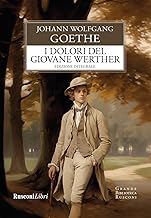 | Reineke Fuchs. Textausgabe. Schroedel Lekt├╝ren
 | Gl├╝cklich allein die Seele, die liebt: Gedanken, die guttun
 | Das kleine Johann Wolfgang von Goethe Poesiealbum: Mit Scherenschnitten von Johanna Beckmann
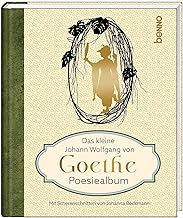 | Wer lange lebt, hat viel erfahren: Heitere Gedanken über das Älterwerden
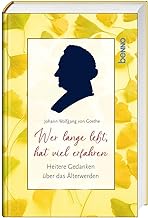 | The Flight to Italy: Diary and Selected Letters
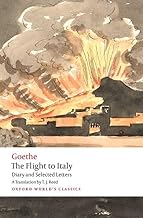 | Wilhelm Meister's Apprenticeship: Princeton Classics Edition
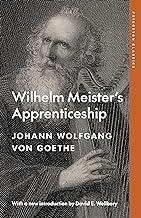 | The Faust of Goethe
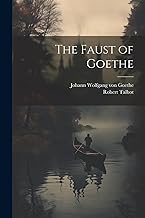 | Goethes Liebesbriefe an Frau Von Stein, 1776 Bis 1789
 | Briefwechsel Zwischen Goethe Und F. H. Jacobi
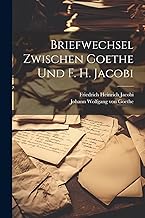 | Satyros And Prometheus
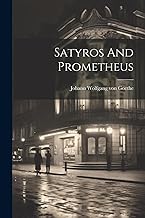 | The Sorrows Of Werter
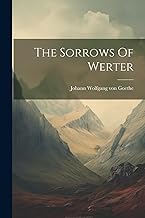 | Goethes Gedichte
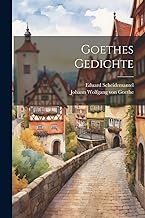 | Schillerlieder von Goethe, Uhland, Chamisso, R├╝ckert, Schwab, Seume, Pfizer und anderen, nebst mehreren Gedichten Schillers,
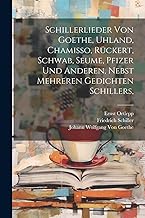 | Briefwechsel zwischen Goethe und Johann Wolfgang D├Âbereiner (1810-1830);
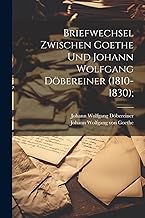 | Dichtung und Wahrheit, illustrierte und kommentierte Ausgabe
 | Spr├╝che in Prosa, Maximen und Reflexionen;
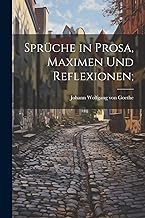 | Shorter poems of Goethe and Schiller, in chronological order
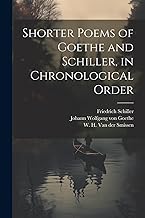 | Faust, der Trag├Âdie erster Teil synoptisch
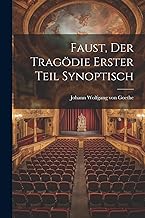 | Faust, trag├ędie de M. de Goethe, traduit par M.A. Stapfer
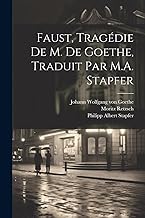 | M├ęmoires De Goethe: Poesie Et Realite, Volume 1...
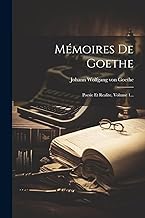 | Goethe, Ses M├ęmoires Et Sa Vie, Volume 4...
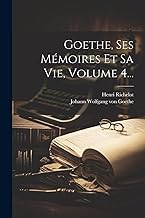 | Les Hommes C├ęl├Ębres De France Au Dixhuiti├Ęme Si├Ęcle, Et De L'├ętat De La Litt├ęrature Et Des Arts A La M├¬me Epoque...
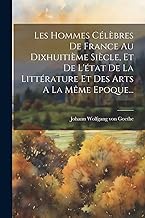 | Goethe's Iphigenia auf Tauris: Goethe und das griechische Alterthum.
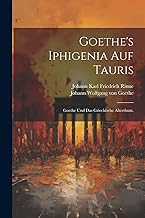 | Oeuvres Dramatiques...
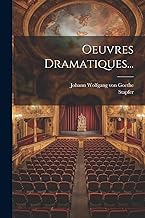 | J.w. Von Goethe's Works
 | Hermann Und Dorothea: Ins Altgriechische ├ťbersetzt Von A. D├╝hr...
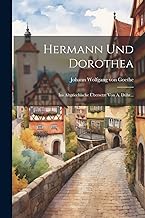 | The Autobiography Of Goethe; Volume 2
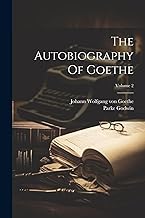 | Tageb├╝cher und Briefe Goethes aus Italien an Frau von Stein und Herder.
 | Maximes et R├ęflexions
 | S├Ąmmtliche Werke: Vierter Band
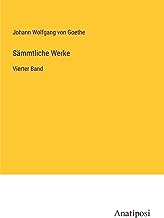 | The Fairy Tale of the Green Snake and the Beautiful Lily
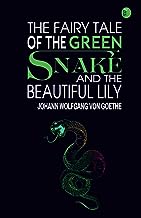 | S├Ąmmtliche Werke: Erster Band
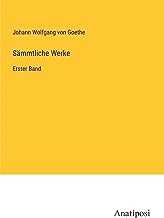 | Faust: Bir Fragman
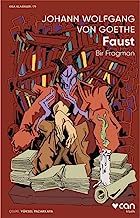 | The Sorrows Of Young Werther
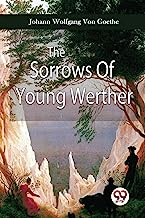 | Die Leiden des jungen Werther: Ein Roman in Briefen: 115
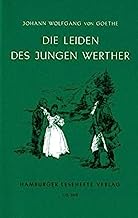 | Las penas del joven Werther
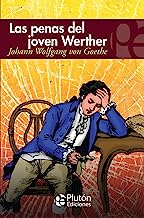 | La metamorfosi degli animali
 | Faust: Erster und zweiter Teil
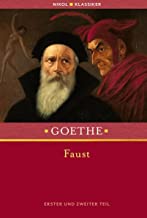 | Die Leiden des jungen Werther: 5
 | Osterspaziergang
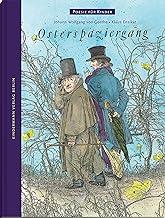 | Teoria della natura
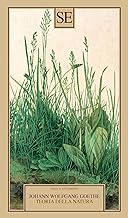 | Les ann├ęes de voyage de Wilhelm Meister; Entretiens d'emigres allemands, les bonnes femmes nouvell, Traduction nouvelle
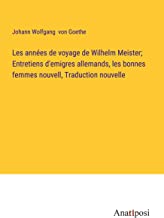 | Les annees d'apprentissage de Wilhelm Meister; Traduction nouvelle par Jacques Porchat
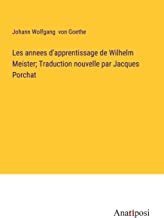 | Les affinit├ęs ├ęlectives - Johann Wolfgang von Goethe - Collection La biblioth├Ęque des classiques - ├ëditions Ararauna: Texte int├ęgral
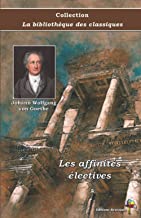 | Venetianische Epigramme: in Gro├čdruckschrift
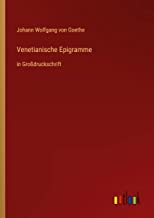 | Die Mitschuldigen
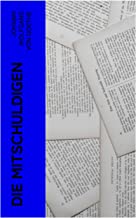 | Briefe Schillers und Goethes an A. W. Schlegel: Aus den Jahren 1795 bis 1801, und 1797 bis 1824, nebst einem Briefe Schlegels an Schiller
 | Kampagne in Frankreich
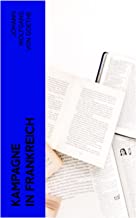 | Die Laune des Verliebten: Ein Sch├Ąferspiel in Versen und einem Akt
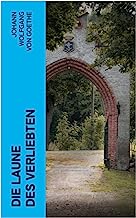 | R├Âmische Elegien
 | Hermann und Dorothea
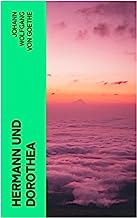 | Reineke Fuchs
 | Briefe von Goethe an Lavater aus den Jahren 1774 bis 1783
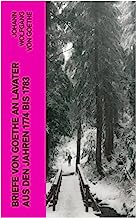 | Maxims and Reflections
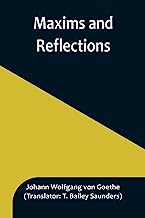 | Essai sur la m├ętamorphose des plantes
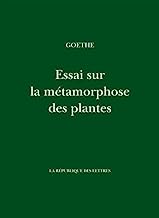 | Die Mitschuldigen; Ein Lustspiel in drei Aufz├╝gen: in Gro├čdruckschrift
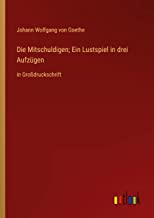 | Die sch├Ânsten Ostergedichte
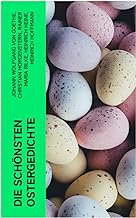 | Der Erlk├Ânig: Kunstbuch
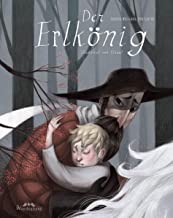 | G├Âtz von Berlichingen. Begleitmaterial
 | Die Leiden des jungen Werther: Textanalyse und Interpretation mit Zusammenfassung, Inhaltsangabe, Charakterisierung, Szenenanalyse und Pr├╝fungsaufgaben mit L├Âsungen uvm.: 79
 | Las penas del joven Werther
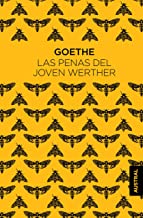 | La C├Ęne de Leonardo
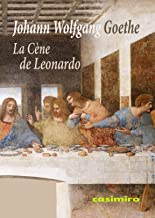 | Egmont: Ein Trauerspiel in f├╝nf Aufz├╝gen: 14370
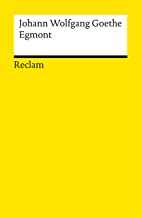 | Naples
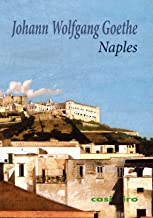 | Wilhelm Meisters Lehr- und Wanderjahre: Gebunden in feingepr├Ągter Leinenstruktur auf Naturpapier aus Bayern. Mit Schutzumschlag: 19
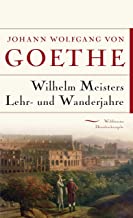 | Una lettera fa ancora in tempo ad arrivare prima di me. Carteggio 1794-1805
 | 50 Gedichte: 14369
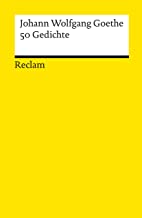 | Faust I, II und Urfaust: Illustrierte Ausgabe
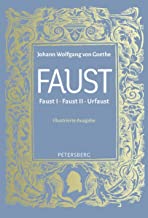 | Kurslekt├╝re Johann Wolfgang von Goethe: Faust: Lekt├╝re Klassen 11-13
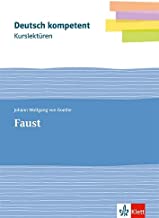 | Zur Faustedition: Begleitband
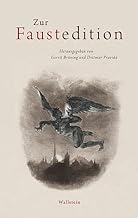 | La bella genovese e altre prose rare
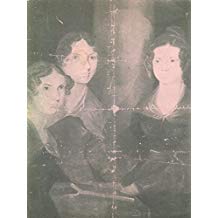 | La metamorfosi degli animali
 | I dolori del giovane Werther. Ediz. integrale
 | Le affinitÓ elettive
 | Vita di J. J. Winckelmann (Scrivere le vite)
 |
 Ora puoi inserire le news di zam.it sul tuo sito. Ora puoi inserire le news di zam.it sul tuo sito.
Pubblica le news
|

